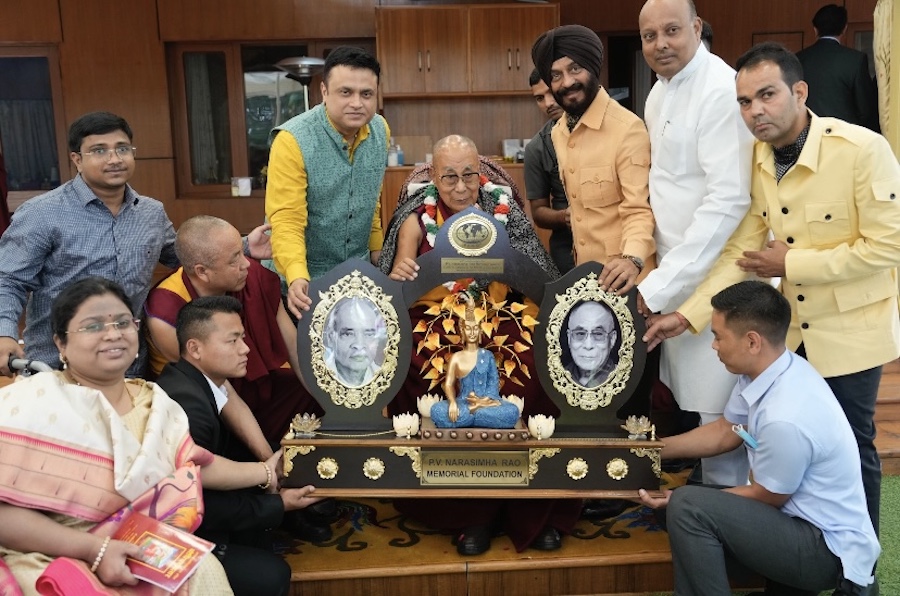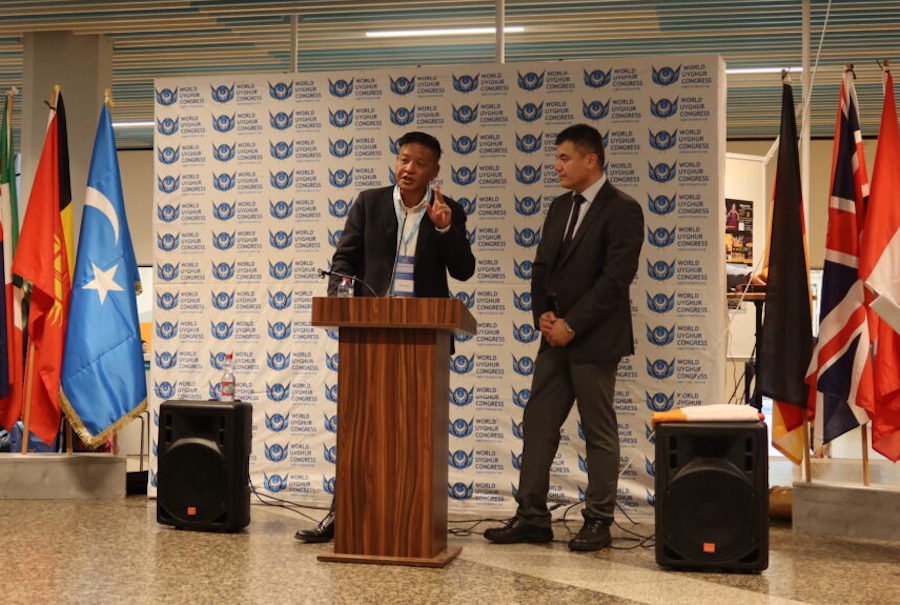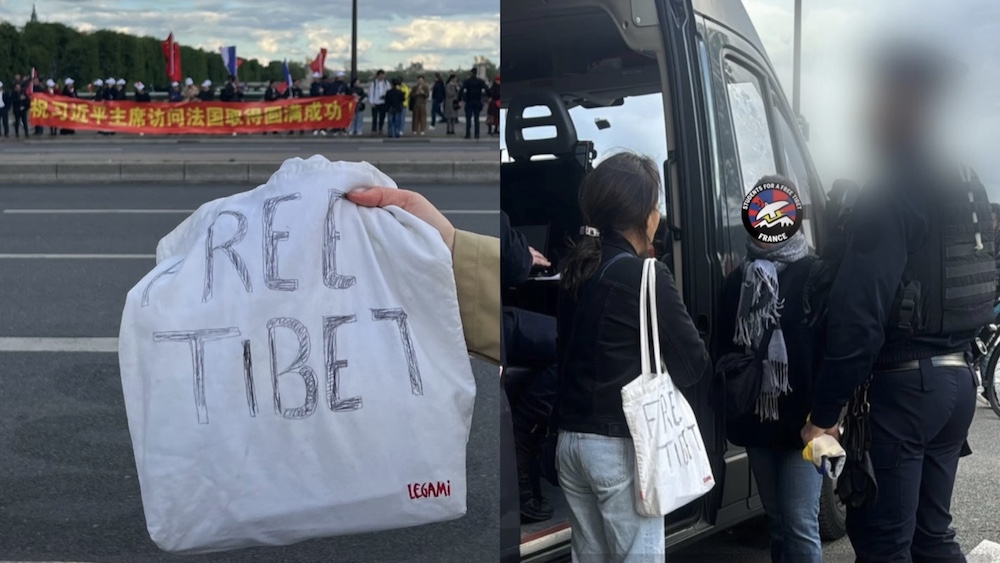The Urgency of New Leadership
MONTREAL, SEPTEMBER 2nd, 2008. On this 48th anniversary of Democracy Day, Thubten Samdup, a former member of Tibet’s Parliament-in-exile, is calling on the international Tibetan community to prepare to elect the next the Kalon Tripa. He has undertaken a personal initiative to establish a vital process of pre-nomination; one that places the greater part of the onus on all exiled Tibetans to actively participate in the selection of candidates for the office of Prime Minister. Samdup has undertaken this project in order to help bring forward dynamic contestants for the upcoming election in 2011. Idealism and Energy
Inspired by the excitement, idealism and energy generated by the candidacy of Senator Barak Obama in the United States’, Samdup has cited the need for Tibetans to be roused to inject a similar enthusiasm and vision in their political process. Pointing to the urgency of the task-at-hand, he has emphasized the time factor, and the need for a greater diversity of candidates, as two major concerns.
The incumbent Kalon Tripa, Prof. Samdhong Rinpoche, will serve his term until August 2011. “Although this date is some years away, it is the opportune moment to begin our search for upcoming candidates. We have three years to find a worthy leader. It would be irresponsible to put off a search for candidates any later, as this period affords us just enough time to proceed. To wait any longer would be to court disaster.” Samdup is concerned with establishing an acceptable margin of time preceding the election, one that affords sufficient latitude to allow for a grassroots process of selection to unfold at a reasonable pace. Also of concern, is the issue of diversity. The pre-selection process, it is expected, will deliver a greater measure of choice –responsive to changing times. This would be arrived at by seeking to expand the range and diversity of perspectives represented by candidates running for the office of Kalon Tripa. The goal is to offer a more diversified group of candidates with contrasting viewpoints – reflective of the base. “In launching this project I am urging the community to meet its civic obligation, and beactively engaged in bringing change and choice in our election process,” said Samdup.
Decisive Role of the Next Prime Minister
The next Kalon Tripa’s term, five years in duration, will prove a decisive one. His Holiness will be turning 81 by the end of the next Kalon Tripa’s term, making the role of the next Prime Minister all the more crucial. “This new candidate must assume a greater load,” said Samdup. “The next Kalon Tripa must be someone with strong leadership skills, capable of leading the government, and bringing a clear vision that is bold and vibrant enough to also seize the interest and imagination of the young.”
Responsibility and Privilege
Since 2001, the Kalon Tripa has been elected directly by individuals who make up the Tibetan Diaspora. With the responsibility and privilege to elect a prime minister now resting squarely with the Tibetan people, it is incumbent on the community around the world to respond promptly and earnestly to this call, he said. “In seeking and nominating candidates, we should aim to find someone who is at least equal in dedication and integrity as Samdhong Rinpoche.” “I believe it is imperative that we establish a process that will allow Tibetans, with proven leadership skills, to put their names forward as candidates in the 2011 elections.”
The New Pre-selection Process
- A website entitled KalonTripa.org, will be set up, to invite all Tibetans in the Diaspora to put forth the names of those they believe would make the best candidate for the next Kalon Tripa.
- The KalonTripa.org website will be opened in October 2008. Name recognition is necessary in all elections. New candidates will need this time to effectively present their platform, and address various key issues. Constituents will need the time to get to know the candidates, and understand their message.
- In order to submit a name to the website, all nominations will have to be supported by at least 25 Tibetans who are currently hold Green Books The nomination paper must be authenticated by the local Tibetan Welfare Officer.
- The website will provide Tibetans with a photo of the candidate and present a brief bio on each nominee. Candidates would be provided with equal space to present their platform.
- Once there are a few nominees on the website, Tibetan TV, radio and print media would be encouraged to begin interviews, introducing the candidates. A televised debate, to be held in Dharamsala close to election time, is also planned.
- The website will be closed a few months before the Tibetan Election Commission sends out its circular, announcing the official election nomination for the next Kalon Tripa.
A Personal Initiative
Samdup stressed this is a personal initiative and is not driven by any special interest group. It is the result of reflection and extensive consultation with government officials in Dharamsala, NGOs and community leaders.
He stated two main goals:
- to bring about a greater measure of choice, by seeking to expand the range and diversity of candidates running for the office of Kalon Tripa;
- to avoid leaving the selection process too late, thus, averting two possible worst-case scenarios that could result from working within too short a time frame: one such scenario would be “finding ourselves with no candidates for the office of Kalon Tripa, and having the Tibetan parliament-in-exile request His Holiness to appoint the next Prime Minister.” The other risk is that too few or no new nominees would take part in the election contest, thus leaving a candidate to virtually become Kalon Tripa by default.
“We cannot allow this to happen, and must do everything possible to avoid this outcome.”
A Time for Change and Choice
In the past, the Tibetan Diaspora has benefited from many gifted and skillful political leaders who have served the community well, Samdup noted. He hopes many of these will opt to run for the office of Kalon Tripa in the upcoming election.
However, not all views among the political base have been sufficiently well represented. The Tibetan community holds many divergent opinions and evolving ideas concerning their historical predicament. These views and voices, while not adequately represented, nonetheless have the support of large numbers of constituents. This is particularly the case among the young, who are eager and ready to play a leadership role and inject new ideas that will shape their future – given the opportunity. It is of paramount importance to engage youth in the election process. 75% of the exile population today is under the age of 45. The participation of this demographic group is vital to the life and vibrancy of the Tibetan political process.
According to Samdup, the goal should be to generate a wealth of candidates, each offering a diversity of positions reflecting the varied perspectives and experiences of the community.
“It is time for change and choice in our election process,” he concluded. “I believe that IT technology can provide the leaders in our community with a platform to express their opinions and provide all Tibetans with the opportunity to debate key issues and ultimately choose the leader who best reflects their views.”
Samdup’s hope is that by assembling a strong and divergent group of candidates, offering distinct visions and new political platforms, organic political parties would eventually emerge and a healthy democracy would thrive.
For further information, please contactThubten Samdup:
514-867-6770
samdup@tibet.ca









